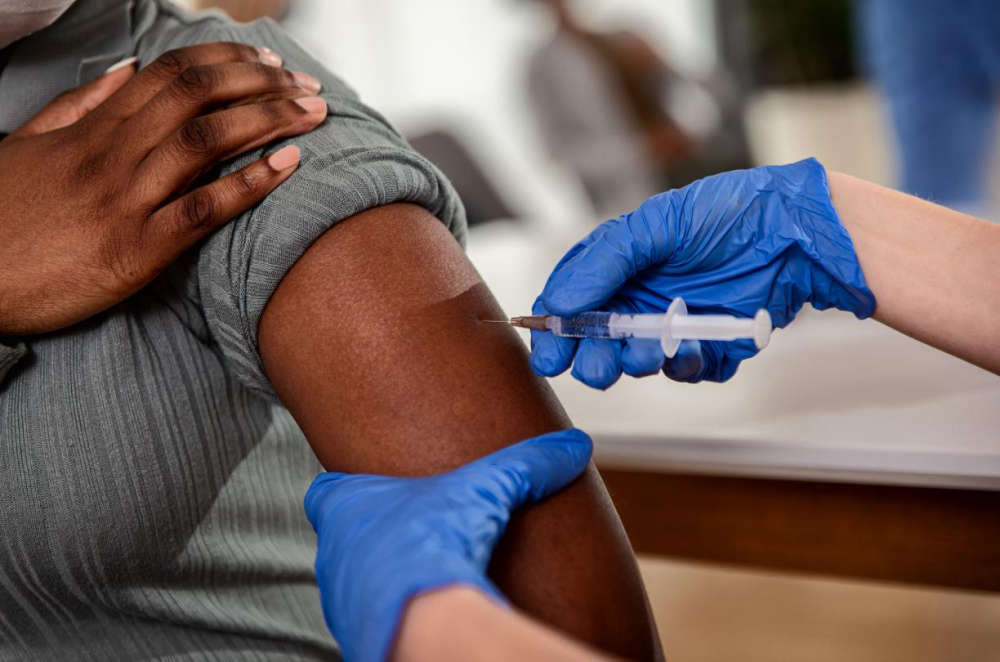
A review by UK Health Security Agency shows that people who have had one or more doses of a coronavirus vaccine are less likely to develop long Covid than those who remain unvaccinated.
The review includes 15 UK and international studies that were undertaken up until January 2022. An estimated 2% of the UK population have reported symptoms of long COVID or post-COVID syndrome, which can last for more than four weeks after their initial infection. The three most common symptoms are fatigue, shortness of breath and muscle or joint pain.
Most of these studies suggest that vaccinated people (one or two doses) were less likely to develop symptoms of long COVID following infection compared with unvaccinated people – in the short term and long term (four weeks up until six months after infection).
The data from some of the studies included in the review suggests that:
- People with COVID-19 who received two doses of the Pfizer, AstraZeneca, or Moderna vaccines or one dose of the Janssen vaccine, were about half as likely as people who received one dose or were unvaccinated to develop long COVID symptoms lasting more than 28 days
- Vaccine effectiveness against most post-COVID symptoms in adults was highest in people aged 60 years and over, and lowest for younger participants (19 to 35 years).
The remaining studies looked at the effects of vaccination among people who already had long COVID symptoms.
These studies show that vaccination is not only the best protection against severe illness, and death from COVID-19 but also from Long COVID. They provide us with yet another benefit of being jabbed.Lucy Wightman - Joint Director of Public Health, North and West Northamptonshire Councils
For most people symptoms of long COVID are short-lived and resolve overtime. But for some, symptoms can be more severe and disrupting to their daily lives. For those with pre-existing health complaints the impact can be catastrophic.
If you’re experiencing unusual symptoms particularly for longer than four weeks after infection, you should consider contacting your GP.
Northamptonshire's Public Health team would also like to remind residents to ensure themselves and their children take a Lateral flow test before returning to work after half term and that if they test positive - to isolate in line with current government guidelines.
Covid-19 in the county this week
An analysis of the county’s recent coronavirus cases and rates over the period 7 to 13 February 2022, shows:
- 5,265 residents tested positive for COVID-19 in Northamptonshire this week. Of this number, 532 were reinfection cases. ‘Reinfections’ are a new measurement now appearing in the county’s weekly data surveillance report and are defined as, ‘an infection of COVID- 19 from any of the variants after 90 days from the date of the last positive test.’
- Northamptonshire’s infection rate per 100,000 population is 836. West Northamptonshire’s rate per 100,000 population is 914.9. Both are significantly higher than the national average (628.3).
- Five people died in Northamptonshire within 28 days of a positive test.
- Overall, more women than men tested positive for COVID-19 in the last 28 days.
- The age group with the most positive cases was 10-19-year-olds.
- 30–39-year-olds also had high numbers of positive cases in both males and females with a greater number of females in this age range testing positive.
View the weekly Covid-19 Surveillance Report


 Local news content from CItiblog - read more at
Local news content from CItiblog - read more at  True crime expert from Olney nominated for national awards
True crime expert from Olney nominated for national awards
 Why Modernising Contract Drafting and Review Processes Matters for Business Growth
Why Modernising Contract Drafting and Review Processes Matters for Business Growth
 Countdown is on to Northampton Dragonboat Festival 2024
Countdown is on to Northampton Dragonboat Festival 2024
 Help to identify Kingsthorpe Man known as 'Terrance'
Help to identify Kingsthorpe Man known as 'Terrance'
 Totectors celebrate awards success
Totectors celebrate awards success
 Charity Single is a big hit
Charity Single is a big hit
 Have Your Say On Measures To Promote Responsible Dog Ownership
Have Your Say On Measures To Promote Responsible Dog Ownership
 Northampton Market Relocation
Northampton Market Relocation


Comments
Add a comment